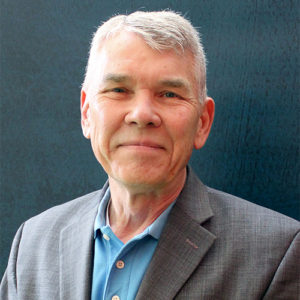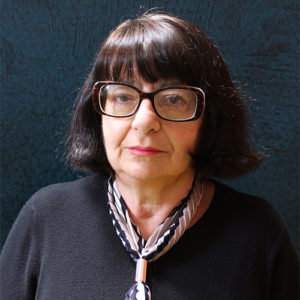My Introduction to Integrative Medicine
Author: Yoko Masuda, MD
Dr. Yoko is a Japanese doctor who is dedicating 18 months of her medical career, starting in 2018, to learning about integrative and orthomolecular medicine at the Riordan Clinic. Below is her experience at the Riordan Clinic to date.
In October 2009, my uncle was diagnosed with Stage IV esophageal cancer. At the time I was a fourth year medical student. I remember thinking how sad I was that my uncle would not be able to live long. His doctor had told him that there was no treatment, wished him well, and sent him home. His esophageal cancer reoccurred twice, becoming laryngeal cancer and stomach cancer as well. He almost died several times.
 My uncle is still living and doing very well. When I come his house, he says, with a smile, “Hey Yoko, how are you? How is your job?” He visits the hospital once a year to have an endoscopic examination only. He takes several nutritional supplements, traditional Chinese medicine, and IVC (currently only when he feels like it because he is not a methodical person). His hands are numb as a side effect of radiation and chemotherapy; however, for about 10 years he has lived fairly well as a survivor from esophageal cancer Stage IV.
My uncle is still living and doing very well. When I come his house, he says, with a smile, “Hey Yoko, how are you? How is your job?” He visits the hospital once a year to have an endoscopic examination only. He takes several nutritional supplements, traditional Chinese medicine, and IVC (currently only when he feels like it because he is not a methodical person). His hands are numb as a side effect of radiation and chemotherapy; however, for about 10 years he has lived fairly well as a survivor from esophageal cancer Stage IV.
This is not a miracle. It is a result of my uncle’s and our family’s fight for his life. This experience completely changed my concept of cancer treatment. Traditional medical treatment guidelines are not the only way for cancer patients. The doctor supporting the patient, without giving up, should be the standard of medical care. Most acute diseases, such as myocardial infarction, tuberculosis, pneumonia and appendicitis, can be managed with modern medicine. What about chronic diseases like cancer, diabetes, and arteriosclerosis? Although thousands around the world have been researching for decades, spending a huge amount of money on their research, cancer statistics are not decreasing at all. In fact, they are increasing in Japan. Integrated, holistic medicine and high-dose vitamin C therapy can be successful against these chronic diseases, and also prevent them. I’m so convinced that I’m learning at Riordan Clinic
Introduction of Riordan Clinic
In Wichita, Kansas, Riordan Clinic is in the land of the Wizard of Oz. Riordan Clinic has three clinics in the State of Kansas, and about 50 staff members and volunteers who work in clinical and research departments. They have administered more than 90,000 high-dose vitamin C infusions since its founding in 1975. The IVC protocol we know well in Japan was developed at this research department. The Riordan Clinic in Wichita at which I am training is 37 hectares (about 90 acres) with eight central domes, a pyramid for meditation and yoga lessons, a nature preserve, and a pond. The domes includes clinic, research department, examination departments, supplement and book store, library, conference rooms, and cooking room. You can also regularly see wild deer and turkey in the nature preserve.
Patient is Co-learner
The patients who visit the clinic are from 47 countries around the world and almost every state in the United States. About 70% of Riordan patients have cancer. Many patients have high-dose vitamin C infusions every day, as well as ozone injections and chelation therapy. There is also counseling on preventing disease, weight loss, and pediatric health. Patients are not expected to be treated passively, but as co-learners. They are expected to learn how to recover their own health with the help from Riordan Clinic, and to be actively involved and responsible for their own treatment. Riordan Clinic hosts many lectures, publishes a free monthly Health Hunters magazine, has a library open to the public, and over 100 past lectures available on YouTube for free! The lecturers are fabulous. Don’t miss them.
 Dr. Ron Hunninghake
Dr. Ron Hunninghake
The Chief Medical Officer of Riordan Clinic, Dr. Hunninghake, is very popular with patients because of his immense knowledge about medicine and nutrition as well as his friendly, humble and polished manner. At the first visit, he takes one and a half hours to talk with patients, completes a thorough examination, and orders appropriate lab testing. Treatments mainly focus on nutrition therapy with infusion and supplements, as well as lifestyle changes such as diet, sleep and exercise. Every Monday, he provides free telephone consultations, so patients can know what the clinic can do for patients before they visit. One of the wonderful things about Dr. Ron is that he does not criticize conventional medicine at all. He is patient with co-learners who find it difficult to improve their lifestyle. I think it is because he understands that it is sometimes very difficult to change their lifestyle all at once. It is natural that we sometimes want to eat sweet things, drink alcohol, or skip exercise. We need to admit such feelings to make improvements in our lifestyle. I have learned his way of bringing patients to a good direction gradually.
 Dr. Nina Mikirova
Dr. Nina Mikirova
In the clinic’s research department, Dr. Nina Mikirova conducts research about vitamin C and continues to publish articles. She originally specialized in physics, mathematics and statistics. She has been doing medical research since she came to Riordan Clinic, and she is one of the leaders in vitamin C research, and she is in close contact with other researchers of vitamin C worldwide.
RECNAC Project – New Vitamin C Infusion Research
It has been mentioned that the IVC protocol, well known in Japan, was developed at Riordan Clinic. The research is ‘RECNAC project’, named after reading the word ’cancer’ backwards. The plan of RECNAC3 is currently underway, and the outline is introduced here. Although a high concentration of vitamin C has the effect of killing cancer cells, there may be cancer cells that are revived as blood concentration decreases with the passage of time following the IVC. It can be thought of as a cause recurrence. For this reason, the main concept of RECNAC3 is to maintain vitamin C concentration in the blood by using continuous infusion. The point of RECNAC3 is not just a continuous infusion, but a combination of continuous IVC, lifestyle change, and nutritional supplementation. Patients spend two weeks thoroughly learning about lifestyle improvements. The effect of lifestyle change on cancer is scientifically proven. I am convinced that this method will be the ray of hope for cancer treatment. It is scheduled to start this summer.
Recent Topics of IVC
First, high dose vitamin C has an anti-cancer effect, not only by generating hydrogen peroxide, but also by making epigenetic changes, as has become clear in recent years. I will explain simply, one of the causes of cancer is a change in gene expression, but vitamin C has the effect of suppressing the change of gene expression to prevent cancer development, and repairing DNA. Second, the vitamin C article on septic shock in 2017 has attracted the attention of clinicians worldwide. The Randomized Control Trial (RCT) in a multicenter study is run mainly by the NIH. As the vitamin C group gets better and better, nurses working there can recognize whether the patients are vitamin C group or placebo, even though the study is double blind. It is a study in which participants absolutely do not want to be assigned to the placebo group.
Future Medical Care
By working with Dr. Hunninghake and Dr. Mikirova for about eleven months I have learned that intravenous vitamin C is one of the most powerful tools for patients, but it is not enough to solve all problems.
Many chronic diseases are lifestyle-related diseases. A variety of causes build up and cause chronic disease, and it takes a long time. We may have had too much alcohol or lack of exercise. We probably eat vegetables every day that have a lot of pesticides used on them. Our favorite fish may contain a high concentration of mercury. Toothpaste is fluoride-containing. Water is sold in plastic bottles that leak phthalate ester. It is unrealistic to think we can solve chronic diseases that have complex causes, with a single magic drug or surgery. Even though vitamins and minerals are important for various metabolic processes in the body, it would still be difficult to cope with all causes by using only one vitamin or mineral.
So how should we treat chronic disease? Address each and every root cause or problem from a functional perspective. At first, it is important to diagnose the condition carefully by interview and examination, and then address the problems that are found. This method applies to patients with any condition. Of course it’s ideal to start early, but it is never too late to begin. At that time, IVC will be a helpful option. I originally loved vitamin C, but I came to Riordan Clinic and that love has grown even more!





